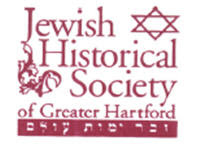Our geneablogging colleague Randy Seaver will speak on "Using Ancestry.com Databases and Family Trees Effectively," at the next meeting of the San Diego Jewish Genealogical Society, on Sunday, May 16.
The program runs from 1-3pm, at the Lawrence Family JCC in La Jolla.
Randy will discuss and demonstrate these topics and more and will offer recommendations.
A native San Diegan, Randy is a graduate of San Diego State University in Aerospace Engineering, and is a retired aerodynamics engineer with a 38-year career at Rohr/Goodrich in Chula Vista. His ancestry is mainly colonial New England and Upper Atlantic, with some colonial German, French and Dutch forebears, and several 19th-century English immigrants. The Ancestry.com subscription website has many wonderful features - it's like a lavish buffet where it is difficult to choose! What is best to do and how do you use it?Searches: basic or advanced search; new or old search screens; exact or ranked matches; full names or wild cards; specific or all databases; restricted collection or whole collection.
For family trees: public or private; one-editor or group editors; GEDCOM upload or enter-by-hand; upload photos and documents; attach historical documents; add stories; "collect" data from others; synchronization with software; etc.
Randy is one of our master geneabloggers, authoring Genea-Musings, The Geneaholic and the Chula Vista Genealogy Cafe.
His many genealogy activities include the Chula Vista Genealogical Society (former president, current newsletter editor and research chair); speaking to Southern California societies, libraries and groups; teaching OASIS senior adults beginning computer genealogy classes; authors the Genealogy 2.0 column for the FGS's ForumMagazine; and is a member of NGS, NEHGS, SDGS and CGSSD.































































